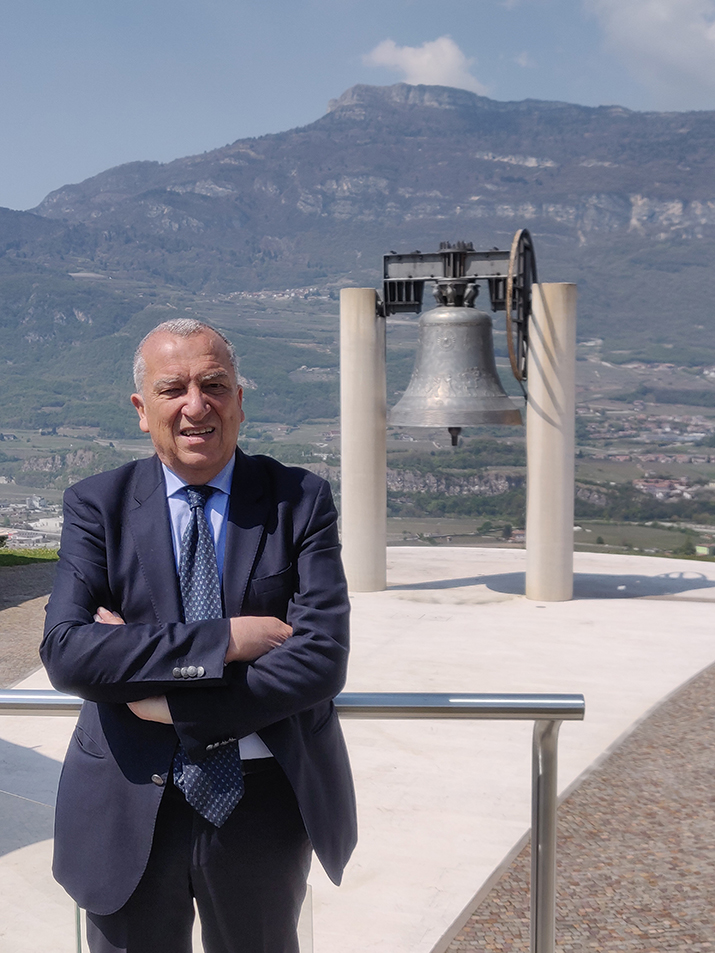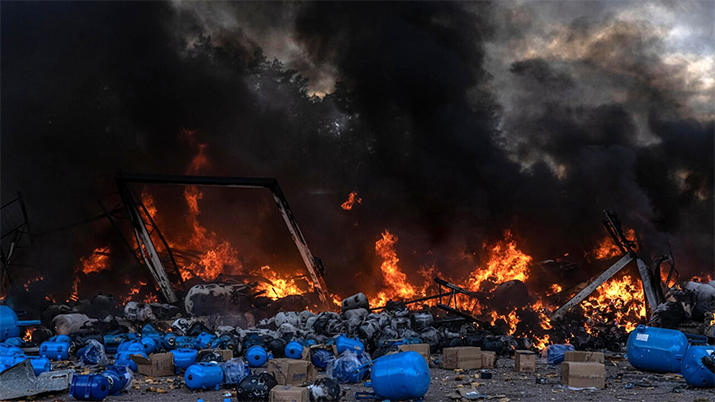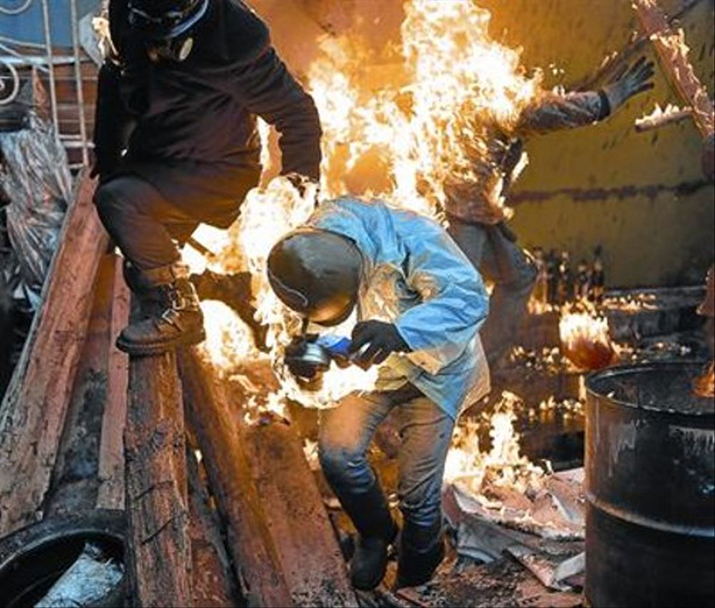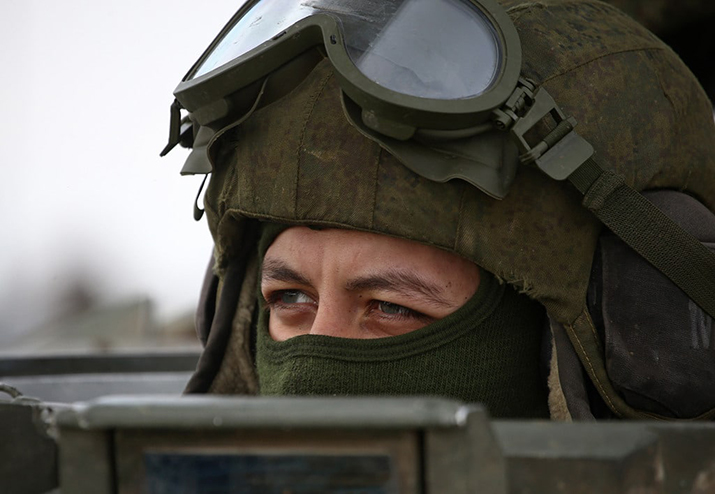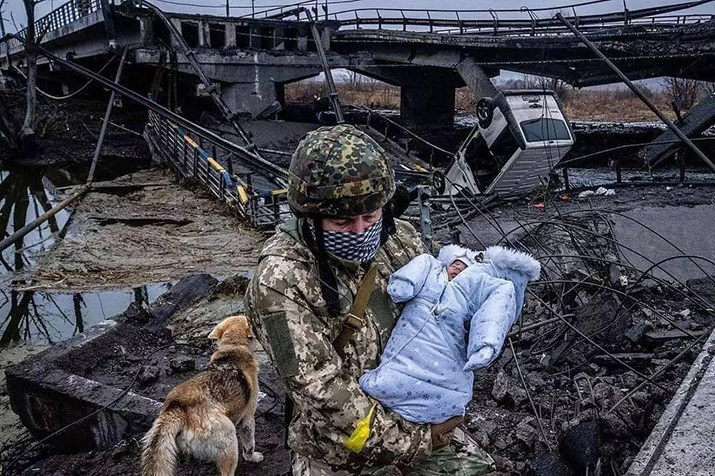Since February 24, our days have been characterized - except for those who have deliberately decided to look elsewhere - by news (and images) that were believed to be relegated to history books. Cities reduced to rubble, bodies, riddled with shots or battered by bombs, scattered in urban areas as well as in remote suburbs, thousands of people fleeing desperately, on foot or by any kind of makeshift means, looking for a salvation not to be taken for granted. We can in fact also ascribe to this category the tragic events of bloodshed related to the dissolution of the former Yugoslavia having now passed 30 years since those events which are now dramatically re-proposed in a European context on an even greater scale.
Faced with a "declaration of war" by the Russian president, in violation not only of international law but also of the most basic rules of civilization (it is no coincidence that the judges of the International Criminal Court in The Hague are examining the existence of crimes against civilians by the Moscow leadership for the purpose of future trials), Europe's response was surprisingly (taking into account previous divisions) broad, decisive and cohesive.
In the economic field, a series of sanctions have been adopted which, a few days after coming into force, have already caused serious setbacks to the Russian system, such as the very strong depreciation of the Ruble and the blocking of currency deposits in foreign banking institutions. The strong European (but not American) dependence on gas and oil from Moscow prevents them, at least in the short term, from exerting an even greater influence.
In the social field, no member country has shied away from welcoming thousands of refugees in hasty evacuations and from anticipating, with appropriate measures, a more lasting integration in their respective territories beyond the current phase of the emergency. Moreover - and this is an unprecedented fact - in consideration of the exceptional nature of the situation, Europe has not even ignored the requests of Kiev (limited, it is true, to those attainable without the risk of triggering a new world conflict) to receive weapons, in particular anti-tank and anti-aircraft, in order to more effectively counter the advance of the preponderant invading Russian forces.
Predictably, it is to this sensitive "openness" that criticism has been concentrated by those who identify two undesired aspects: on the one hand, prolonging the agony of the Ukrainian population, extending the duration of a struggle from what, at least in appearance, seems a predictable outcome. On the other hand, the creation of an increasingly high and impenetrable wall of mutual accusations, mistrust and resentment for the post-conflict phase between Brussels and Moscow. It is a shared belief however that one must sit at the negotiating table, at any given moment, since it cannot really be assumed that the phase of acute conflict that we are witnessing with horror might continue indefinitely.
The resolution passed by the UN General Assembly condemning Russia’s invasion could preclude the general secretary from mediating activity
In this regard, the sustained "passivity" of the organization responsible for resolving this type of dispute, the United Nations, cannot fail to arouse some surprise. The impression of many is that the initial, decisive Resolution condemning the work of Moscow adopted in New York by the General Assembly is precluding the general secretary António Guterres from the mediation activity that would be inherent in his office, opening the field to (self) investiture of decidedly less qualified personalities who are, at least in some cases, not exactly equidistant. In order to overcome the impasse before it becomes endemic, the direct involvement of the two super-powers in the role of "advisors-facilitators" appears indispensable, both with regard to Russia (the role of China) and to Ukraine (a task assigned to the United States). The recent, protracted tele-conference between President Xi Jinping and President Joe Biden, although apparently devoid of concrete results, should be conceived as the start of a path, certainly arduous and demanding, but the only one capable of achieving a shared goal.
As for the possible future scenarios, at the moment each forecast appears premature, as it is susceptible to being disproved by the facts. What seems evident is that President Vladimir Putin "must" gain some advantage from his, albeit infamous, initiative.
This is a morally damning conclusion, but one that corresponds to the unquestionable criteria of realpolitik, according to which a great power (and Russia obviously is) cannot emerge empty-handed from a conflict that it has caused. In this regard, will the recognition of the independence of the republics of Lugansk and Donetsk prove sufficient in addition to the definitive incorporation into the territory of the Russian Federation of Crimea and, perhaps, also the rest of Donbass?
To overcome the crisis, President Putin will have to gain some advantage from his, albeit infamous, initiative
Or will it be necessary to make provisions for the neutrality and demilitarization of the entire Ukrainian state? The recent admission of President Volodymyr Zelens'kyj (unfortunate timing that was not exactly timely ...) regarding Ukraine’s obstacles in joining NATO, will serve to bring the parties closer, clearing the field of the alleged main Russian reason for the aggression?
Furthermore, how will the world order evolve in the coming years? A multipolar system, centred on several "control rooms" (where China and other countries have "emerged" into a prominent position) will take the place, as claimed by many, of today's unipolarism, based on the leadership of the United States and the West as such? This latter system, from the combination of the geopolitical evolutions derived from the second post-war period and the fall of the Berlin Wall, appears objectively exposed to ever more intense and widespread criticism. This is unequivocally demonstrated by the fact that a number of "regional leaders" of great strategic importance, such as China, India, Pakistan and South Africa, have not condemned the Russian aggression at the UN, favouring a more neutral abstention from the vote.
Finally, a word on the involvement of the Rovereto Peace Bell Foundation in this dramatic situation in European history. On 6 March the Colle di Miravalle hosted an event of solidarity with the Ukrainian people, crowned by a huge community participation, in recognition of the existence of a national tragedy. To this, innumerable personal tragedies are added, sometimes too mercilessly recorded from media outlets around the world, with too much attention on profit.
The direct involvement of the United States and China appears indispensable as “advisors-facilitators"
Equally, a similar feeling of solidarity should also be directed to the Russian people, now subjected to a dictatorial-like regime that implacably sanctions any critical manifestation of the established power. In this context, the disconcerting stance taken by the leaders of the Orthodox Patriarchate of Moscow is also significant, while in the rest of Europe the military aggression of the Kremlin was defined as a true "war of civilizations" against absolutely legitimate behaviour (in relation to the rights of LGBT communities).
While the unmistakable voice of Maria Dolens may resound, loud and clear, even in further events in favour of Peace, the Foundation has decided that the flags of Ukraine and the Russian Federation, displayed alongside 100 others along the "Avenue of Nations" of our monumental area, will not, like the others, be attended to by means of the planned annual change.
The current banners, marked by the wear and tear of time, will continue to be hoisted indefinitely, that is, until a negotiation agreement is reached. The tears and frays that already appear there will, as they become more evident, constitute the visual testimony of the resilience and heroism of the Ukrainian people and of the confidence placed in the ability of the Russians to keep the voice of internal dissent alive. The courage of the journalist Maria Ovsyannikova and the tens of thousands of demonstrators imprisoned for opposing the war shows us that this is possible.
Reggente Marco Marsilli, Foundation President
